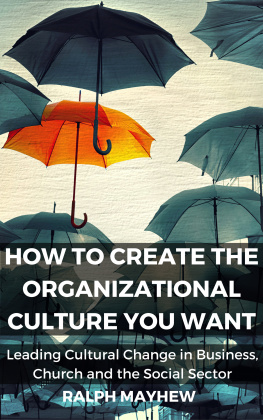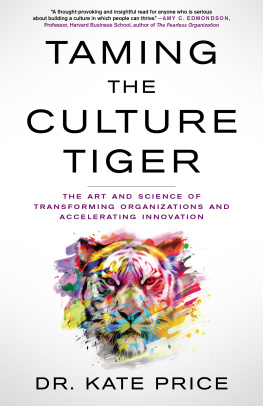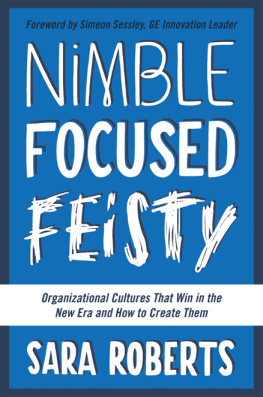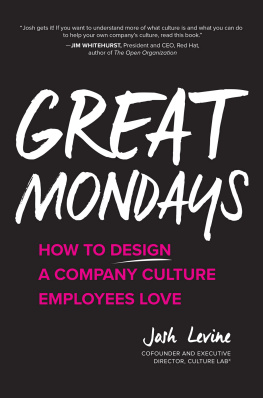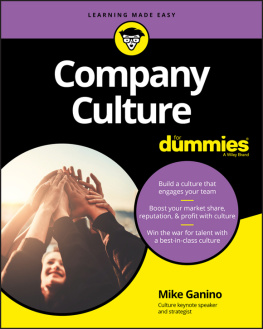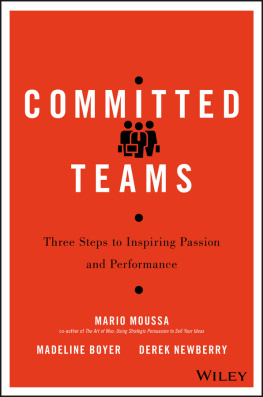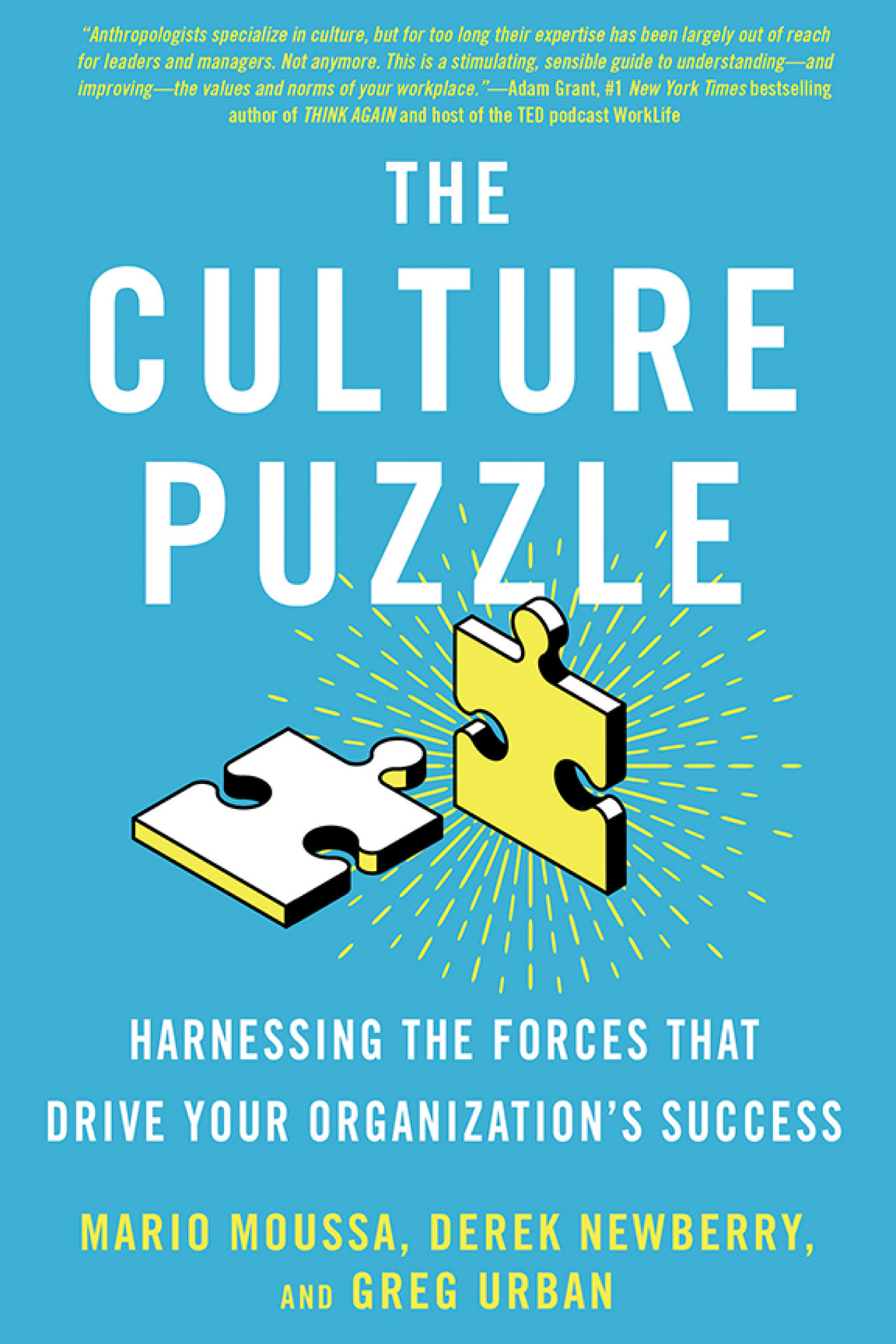Contents
Guide
The Culture Puzzle

The Culture Puzzle
Copyright 2021 by Mario Moussa, Derek Newberry and Greg Urban
All rights reserved. No part of this publication may be reproduced, distributed, or transmitted in any form or by any means, including photocopying, recording, or other electronic or mechanical methods, without the prior written permission of the publisher, except in the case of brief quotations embodied in critical reviews and certain other noncommercial uses permitted by copyright law. For permission requests, write to the publisher, addressed Attention: Permissions Coordinator, at the address below.

| Berrett-Koehler Publishers, Inc.
1333 Broadway, Suite 1000
Oakland, CA 94612-1921
Tel: (510) 817-2277, Fax: (510) 817-2278
www.bkconnection.com |
Ordering information for print editions
Quantity sales. Special discounts are available on quantity purchases by corporations, associations, and others. For details, contact the Special Sales Department at the Berrett-Koehler address above.
Individual sales. Berrett-Koehler publications are available through most bookstores.
They can also be ordered directly from Berrett-Koehler: Tel: (800) 929-2929; Fax: (802) 864-7626; www.bkconnection.com
Orders for college textbook/course adoption use. Please contact Berrett-Koehler: Tel: (800) 929-2929; Fax: (802) 864-7626.
Distributed to the U.S. trade and internationally by Penguin Random House Publisher Services.
Berrett-Koehler and the BK logo are registered trademarks of Berrett-Koehler Publishers, Inc.
First Edition
Hardcover print edition ISBN 978-1-5230-9182-9
PDF e-book ISBN 978-1-5230-9183-6
IDPF e-book ISBN 978-1-5230-9184-3
Digital audio ISBN 978-1-5230-9185-0
2021-1
Book producer: Westchester Publishing Services; Text designer: Westchester Publishing Services; Cover designer: Wes Youssi, M80 Design
For Robin Komita, as ever
Mario Moussa
For Carolyn, co-gardener of my most cherished community
Derek Newberry
For my little family, where community starts for me
Greg Urban
Contents
INTRODUCTION
The Art of Giving and Getting
O ne rainy, sweltering morning in rural Brazil during the summer of 1975, a young anthropologist named Greg Urban sat on the dirt floor of a wooden hut in a village hundreds of miles from So Paulo. Across from him squatted an elder named Knowing One. Knowing One had come of age decades earlier, before his tribe had established peaceful contact with the Brazilian government. Greg had made the long journey through the jungle to learn all he could about Knowing Ones unique culture.
Greg began the conversation by asking about customs and beliefs that stretched back to a distant hunter-gatherer past. He was struck that a strong spirit of give-and-take permeated every aspect of life in this isolated community. To the elder and his fellow tribe members, nothing mattered more than treating everyone with the utmost generosity. This custom helped ward off evil, selfish witches, who cleverly disguised themselves as humans in order to prey on hapless victims.
As Greg began to ask another question, Knowing One interrupted by pointing at the rafters. There perched a brand-new pair of prized Adidas sneakers that Greg had carefully stored away for use on special occasions. Knowing One remarked that Greg owned two pairs of shoes. Greg nodded. Then the venerable elder added, I have none.
Greg realized that Knowing One had just issued a polite request that a tribe member would naturally honor. Im not sure the shoes would fit, Greg replied.
Well, lets see, proposed the elder.
Greg retrieved the sneakers. They fit perfectly. At that moment, Greg saw that he had given away his prized possession in exchange for something far more valuable: a relationship that would last for many, many years. As time went by, Knowing One helped Greg complete his research, introducing him to others in the tribe and explaining habits that were completely alien to a social scientist raised in New Lenox, Illinois (population 1,000). Gregs research, in turn, benefited the entire village, gaining the attention of government officials who provided sorely needed medical resources and other support.
This encounter taught Greg one of the most important lessons he has ever learned about culture. As he puts it, Its all about giving and getting. That distinctively human exchange opens the door to a whole world of needs, meanings, and aspirations.
Years later, working as a business consultant back in the United States, Greg began to appreciate that lesson even more as he saw how the most astute managers operate much like anthropologists performing fieldwork in the Amazonian jungle. They pay attention to subtle cues that reveal the deep motivations that people across civilizations have expressed in wondrously diverse ways: a longing to be part of a group, a desire to receive recognition for being special, and the drive to do good work. You will never find the solution to your culture puzzle without knowing how to connect these vital social and emotional needs to the other pieces of your organization.
Whether you are trying to execute a bold new strategy, make your business more agile and creative, or pull off a major acquisition, culture will make or break your efforts. But culture, like the trickiest brainteaser, often baffles us. Just ask the former CEOs of Uber, Barclays, Wells Fargo, and any number of other organizations where dysfunctional cultures disrupted multi-billion-dollar enterprises. Something went terribly wrong at these companies because executives failed to get a handle on the way culture really works.
Culture puzzles even the smartest leaders. All too often, they assume it will take care of itself. Or they treat it as an unsolvable problem. Its a puzzle, to be sure, but it is solvable. Yet it never solves itself. You can make all the hard, practical decisions about running your operation (reporting lines, incentives, investments, and so on), but they will never resolve the hardest people issues.
As we write this introduction to our book, we find ourselves facing one of the biggest culture puzzles in history. How will we and our organizations endure and rebuild after the global COVID-19 pandemic? What will the new normal look like for businesses? Who do we include and exclude from our communities? How should we make the crucial decisions that will affect our livelihoods and our health? Whats fair? Whats just? Whats important? At every turn, we confront these inescapable questions. To our minds, culture has become Job One. If we fail to take it on, we will all suffer decline, apathy, disengagement, and fragmentation. But we can choose to tackle it wisely and unleash a new era of creativity, productivity, civility, and prosperity.
Drawing from our combined 75 years of experience as anthropologists and business consultants, we show you how to harness the forces that shape your culture and align it with your strategy, goals, and values. Many business experts will tell you that culture starts at the top, where members of the C-suite hold the keys to success. But any anthropologist worth their salt will tell you that culture is


